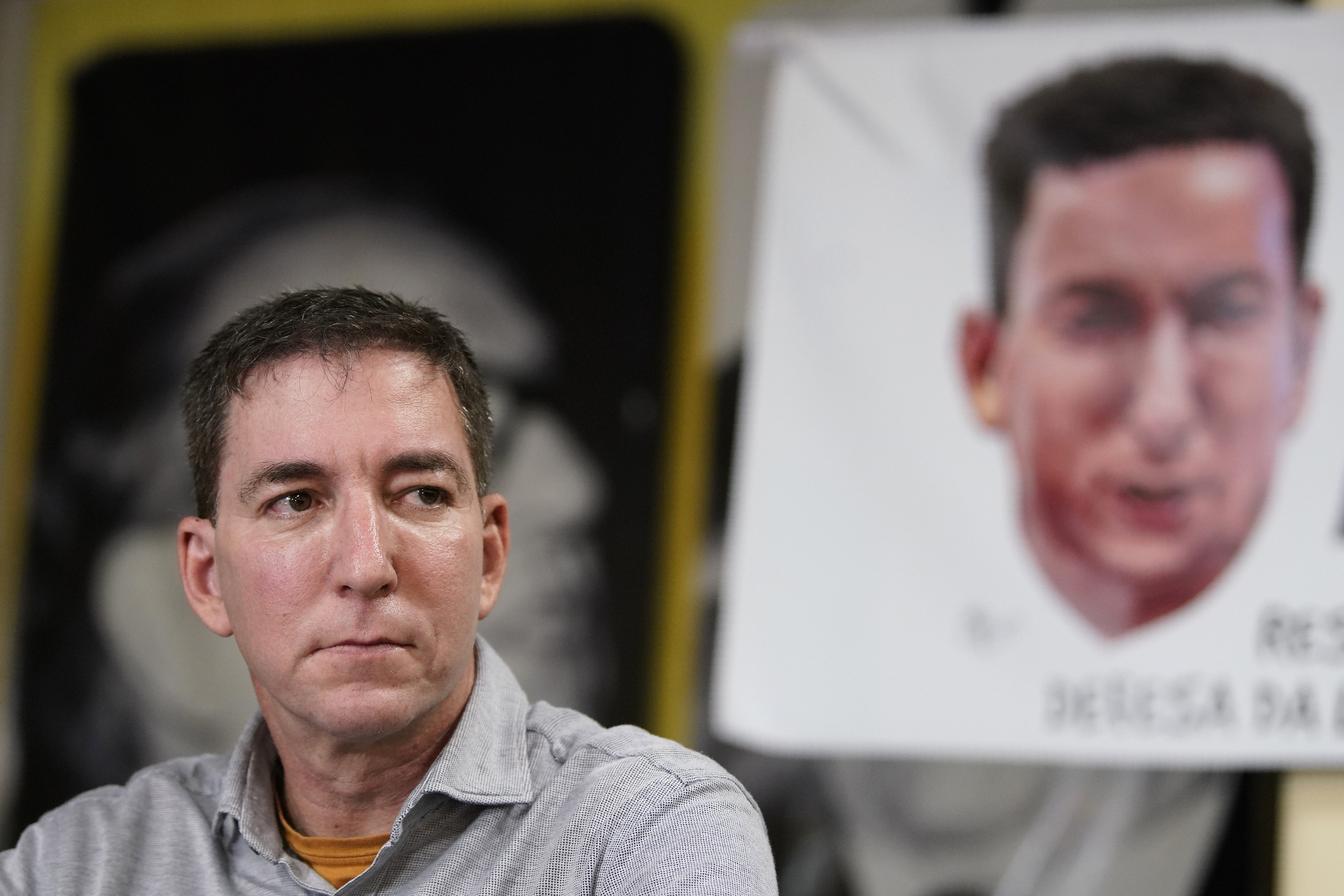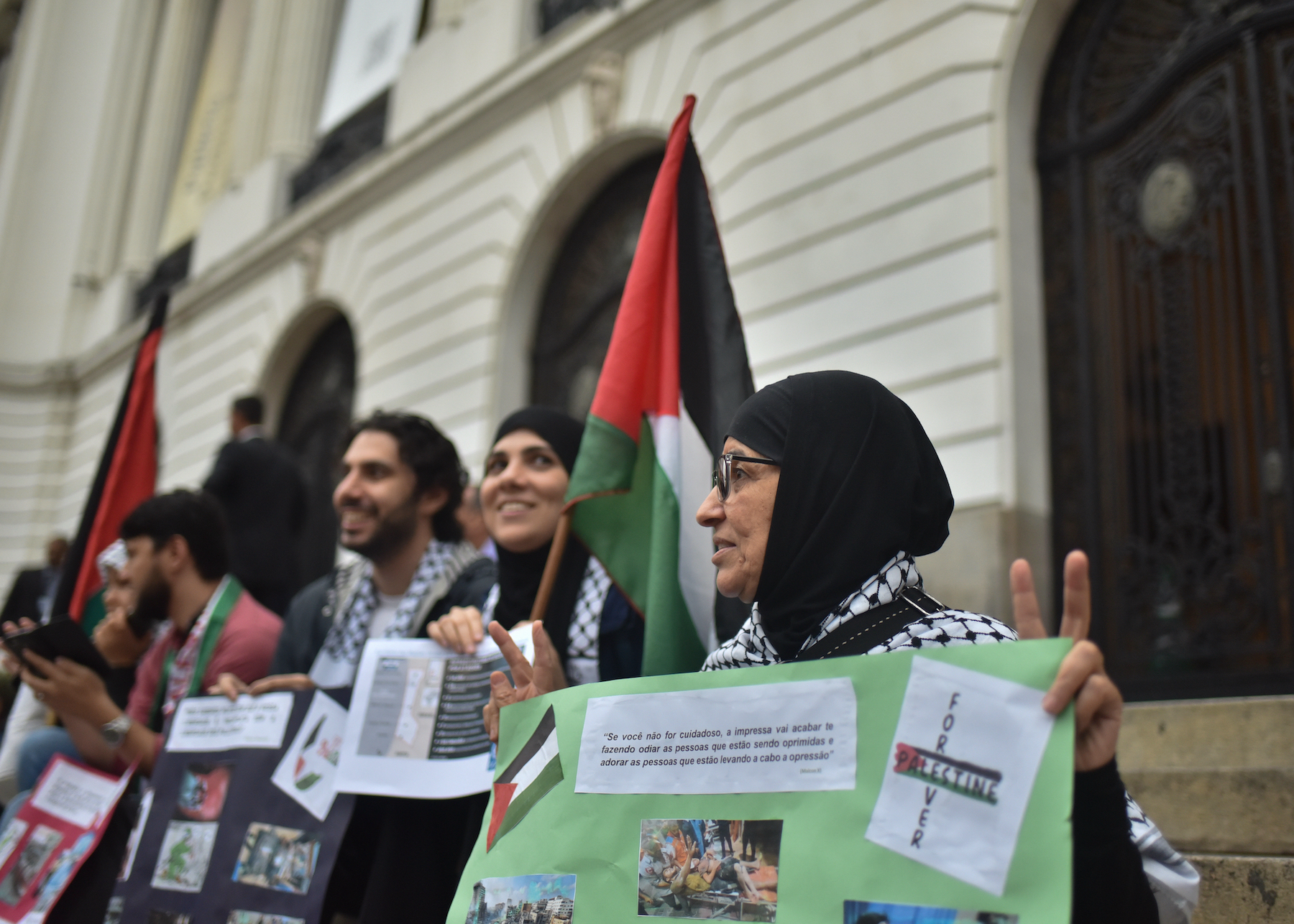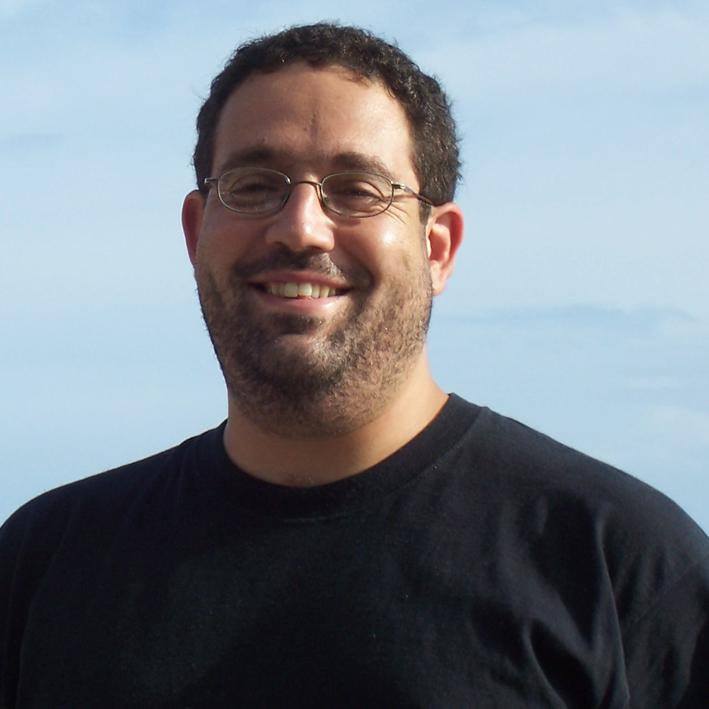This article was originally written in Portuguese, and was translated into English with the help of AI then edited.
Public media in Latin America, such as Brazil's EBC and Argentina's Télam, are being undermined through militarisation and dismantlement, threatening their role as public institutions. These actions jeopardise media independence and weaken their ability to serve the public interest, posing a serious risk to democracy.
Public media is often described as the cornerstone of democracy—giving voice to diverse perspectives, ensuring transparency, and fostering informed citizenship. Yet, in Brazil and Argentina, this cornerstone is crumbling under the weight of political interference and authoritarian ambitions. From Brazil’s militarised Empresa Brasil de Comunicação (EBC) to Argentina’s dismantling of the historic Télam agency, far-right governments have turned public media into battlegrounds, where independence is eroded, censorship enforced, and propaganda began to reign. What once served the public interest is now under siege, despite efforts to restore social control in Brazil.
The Militarization of Brazil's Public Media under Bolsonaro
Brazil’s Empresa Brasil de Comunicação (EBC) was once a beacon of public media independence, created in 2008 to serve as a platform for diverse voices, free from government or corporate interference. Its mission was clear: to reflect Brazil’s social plurality and uphold democratic principles. But that vision gradually eroded, culminating in its transformation into a tool for political propaganda under far-right leadership.
The cracks began to show during Michel Temer’s interim presidency, where the military infiltrated EBC programming. Shows like Forças do Brasil (Forces of Brazil), produced by the Armed Forces (the Defence Ministry, Army, Navy, and Air Force and broadcast nationally on Rádio Nacional), aired under the guise of journalistic content. These changes intensified under Jair Bolsonaro, who filled EBC’s leadership positions with military officials, turning it into a mouthpiece for his administration.
The militarization reached a breaking point during Brazil’s 2023 coup attempt, when former president Jair Bolsonaro’s supporters stormed government buildings. Amid the chaos, the government reclaimed EBC, appointing civilian leaders to neutralize propaganda and restore balanced reporting. However, the incident underscored a troubling reality: public media had become a battleground, caught between democratic ideals and authoritarian ambitions.
On November 19, 2024, Brazil’s Federal Police uncovered a failed plot by military allies of former president Jair Bolsonaro, defeated for re-election in 2022, to assassinate newly elected president Luiz Inácio Lula da Silva, his vice-president Geraldo Alckmin, and Supreme Federal Court Justice Alexandre de Moraes as part of a coup d’état.
![Far-right demonstrations protesting the potential arrest of former president Jair Bolsonaro feature Israeli symbols alongside Brazilian ones. February 25, 2024 [Rovena Rosa/EBC].](/sites/default/files/inline-images/Picture2_8.png)
While investigating the assassination attempt, the Federal Police identified the involvement of Hidenobu Yatabe, a former military officer who served as the head of the presidential advisory team at Empresa Brasil de Comunicação (EBC), Brazil’s public broadcasting company. Yatabe also reportedly influenced the editorial direction of reports. According to journalists at the federally funded media conglomerate, which includes TV Brasil, Agência Brasil, Rádio Nacional, Rádio Nacional da Amazônia, and seven other broadcasters, Yatabe acted as a censor in the newsroom, “monitoring everything published by the company’s outlets.”
By that point, the Board of Trustees no longer had the power to intervene and separate public content from government-imposed narratives. This was because the council, predominantly composed of civil society representatives, had been dissolved via a presidential decree, with council members’ and the company president’s mandates revoked. Under Jair Bolsonaro, elected in 2018, militarisation accelerated: all six EBC directorial positions were filled by military personnel, including the Ombudsman’s Office. This occurred amidst wider political campaigns promoting military influence in schools, enabled by a presidential decree later repealed. Communications appointments under Bolsonaro were further filtered through the office of General Carlos Alberto dos Santos Cruz, then Minister of the Government Secretariat, before presidential approval.
Once in power, the far-right sought to garner public support for a return to authoritarian rule, turning EBC into an instrument of propaganda. During the presidential election campaigns—when restrictions imposed by electoral courts were in effect—the Frente em Defesa da EBC e da Comunicação Pública (Front in Defence of EBC and Public Communication) documented 29 interviews with Bolsonaro’s government officials broadcast live on Voz do Brasil (Voice of Brazil) and simultaneously aired on TV Brasil’s primary news programme. These broadcasts exploited loopholes in government-controlled media to bypass electoral restrictions.
![The Minister of the Secretariat of Communication, Paulo Pimenta, swears in journalist Kariane Costa, the workers' representative at EBC, and highlights a team of five women tasked with managing the company during efforts to contain the coup attempt on January 8 in Brazil. [Marcelo Camargo/EBC]](/sites/default/files/inline-images/Picture3_1.jpg)
EBC’s international coverage also underwent a drastic shift, aligning with Bolsonaro’s new foreign policy priorities. One of the most striking examples was the coverage of Israel’s occupation of Palestine. Under the now-defunct Governing Council, EBC had dispatched a team to Palestine in 2014 as part of a humanitarian mission to report directly on conditions following Israeli attacks on Gaza. In subsequent years, however, EBC adopted a pro-Israel stance, highlighting Bolsonaro’s relationship with Israeli Prime Minister Benjamin Netanyahu and amplifying the president’s controversial Zionist rhetoric, including his statement that Nazism was a leftist movement.
On January 8, 2023, when supporters of Bolsonaro stormed Brazil’s presidential palace, Congress, and Supreme Court, calling for “military intervention,” it became necessary not only to quell the insurgency but also to intervene at EBC. Key leadership positions were urgently reassigned to the company’s employees, with the appointment of journalist Kariane Costa to neutralise potential coup-aligned narratives in EBC’s coverage of the events.
The Brazilian case underscores public communication as a sensitive arena in the struggle between progressive and authoritarian forces in Latin America. It fluctuates between social participation—demanded by civil society—government appropriation, which is a prevailing trend among current administrations, or outright dismantlement, as is now occurring in Argentina.
Argentina’s Télam: From Public Media to Propaganda
Two distinct patterns link the governments of Brazil’s former president Jair Bolsonaro and Argentina’s current president Javier Milei—both internationally recognised as leaders of the Latin American far-right. They share allegiance to U.S. and Israeli interests, frequently invoking national and religious symbols in politics, while also expressing disdain for traditional media amidst the rise of social networks.
![POST from X. Frequent presence of Israeli flags at Javier Milei’s campaign events [Galizia Livre].](/sites/default/files/inline-images/Picture4.jpg)
Almost concurrent with the creation of Brazil’s EBC in 2007, Argentina’s Ley de Medios (promulgated in 2009 but only implemented in 2012 after judicial challenges) was hailed as a milestone and model for decentralising the media system monopolised by a handful of groups in Latin America. However, just as both projects emerged through broad dialogue with society, they were dismantled when political power shifted to opposition governments.
The Ley de Medios, introduced under Cristina Kirchner’s administration, divided broadcast frequencies equally among state, community, and private outlets. It also established regulatory and social oversight bodies and imposed limits on the number of radio stations, television channels, and paid media services any single conglomerate could own. By curtailing the influence of Grupo Clarín, Argentina’s largest media group, the law became a target of private media attacks both in Argentina and Brazil.
When Mauricio Macri took office in 2015, he began dismantling the law by decree, dismissing the heads of audiovisual and telecommunications regulatory agencies, creating a new regulatory body, and effectively obstructing the law’s enforcement. His successor, Alberto Fernández (2019-2023), made no significant effort to challenge media concentration.
![Police officers in front of Télam's headquarters in Buenos Aires on March 4, 2024. [Somostelam.com.ar]](/sites/default/files/inline-images/Picture5_4.png)
Parallel Strategies: Bolsonaro and Milei
Javier Milei, elected in 2024, delivered a final blow to the Ley de Medios, initially appointing overseers to Argentina’s public media outlets, including the country’s oldest news agency, Télam, the Educ.Ar portal, Radio y Televisión Argentina (RTA), Radio Nacional de Argentina, the state’s TV Pública, and Contenidos Públicos, a company managing various broadcasters.
Among these outlets, the case of the Télam agency stands out. Established 78 years ago as a mixed-capital company, combining private and state investment, Télam aimed to break the information monopoly held by United Press International (UPI) and the Associated Press (AP), and the private Clarin group. Under successive governments, including Carlos Menem (1989–1999), Fernando de la Rúa (1999–2001), and Mauricio Macri (2015–2019), Télam faced repeated threats of closure or partial dismantlement.
Its role was ultimately redefined in September 2024, when a presidential decree by Javier Milei converted it into a state-run advertising and propaganda agency. The agency was tasked with “developing, producing, marketing, and distributing national and/or international promotional content, both within Argentina and abroad.” Afterwards, the agency's internet portal was suspended without explanation.
![Workers create the “Somos Todos Télam” movement and mobilise against the threat of the Télam agency’s closure in March 2024 [Somos Todos Télam].](/sites/default/files/inline-images/Picture6_1.png)
Milei also expanded, through a decree, the types of information the Argentine state can withhold from citizens and the press, while significantly restricting the number of journalists granted interviews.
Similar to Jair Bolsonaro, Milei concentrated his communications on social media, hindering the work of traditional media. Tensions peaked during Milei’s visit to the United States, when he launched unprovoked attacks on the Argentine press, stating, “Most journalists hate the social network X, and we libertarians love X,” referring to the platform owned by far-right government supporter Elon Musk.
On November 14, Milei attended a reception hosted by U.S. President-elect Donald Trump and later gave an interview to influencer Lex Fridman, in which he bluntly claimed, “Journalists are serial torturers.” He followed this by posting on X: “I want to tell these pseudo-journalists that the time has come for them to pay the price for lying, slandering, insulting, and even committing extortion crimes.”
Resistance and Efforts for Restoration in Brazil
On December 16, the Empresa Brasil de Comunicação (EBC) announced the names nominated by social organisations to join the newly created Sistema Nacional de Participação Social em Comunicação Pública (SINPAS—National System for Social Participation in Public Communication). The system comprises two committees—one editorial and another focused on participation and diversity—along with an ombudsman’s office, and an advisory body for engagement with public and regional university broadcasters. A second list of nominees will be submitted to the president for appointment.
The system was designed by a Grupo de Trabalho (Working Group) established by the General Secretariat of the Presidency of the Republic (Secom), involving civil society, workers, the company, and the federal government. Its purpose is to address the lack of public participation in Brazilian public communication after years of dismantling. However, while the creation of SINPAS is celebrated as a significant achievement, it also reflects the lingering trauma of past setbacks.
SINPAS will remain subordinate to the EBC’s management, falling short of the autonomy envisioned in the company’s founding legislation. For meaningful participation to take root, the government must submit a project to Congress that restores protective instruments for public communication against undue interference. This has yet to occur, even with the return of a progressive government. Persistent disputes over the fate of EBC have forced a shift in President Lula’s approach, which now sees the company kept under tighter government control.
![Installation of the Working Group to restore social participation in public communication [Lucas Leffa/SECOM - Presidency of the Republic of Brazil].](/sites/default/files/inline-images/Picture7_2.png)
The fragile balance of power leaves EBC under constant pressure and opposition attacks, which also reflect back on the government itself. A telling example of this precarious situation was the recent replacement of the company’s leadership.
Appointed at the start of Lula’s administration to replace the interim worker-representative leadership, journalist Helio Doyle came under significant pressure from Zionist groups after expressing personal views on social media about Israel’s disproportionate military response following the October 7 attacks. Ten days into the “Operation Al-Aqsa Storm,” Doyle retweeted a post by cartoonist Carlos Latuff that stated, “You don’t have to be a Zionist to support Israel. Being an idiot is enough.” Doyle was subsequently dismissed on grounds of having caused “embarrassment to the government.”
If the protections outlined in EBC’s original law, such as leadership mandates, had still been in place, the matter would have been referred to the Board of Trustees for a proper and urgent debate before any decision on dismissal. Such discussions would have centred on the neutrality of EBC’s coverage of the October 7 events, particularly since its reporting continued to frame Israel’s overwhelming retaliation against Palestinians as a “war between Israel and Palestine.”
![Workers at Télam mobilise as the Argentine government plans to shut down the state news agency [SomosTelam.com.ar].](/sites/default/files/ajr/2024/Picture1_0.png)





![A demonstration against Israel's war on Gaza on Paulista Avenue in São Paulo on November 4, 2023, draws attention to the deaths of children while the media focuses on the war against terrorists. [Photo: Lina Bakr]](/sites/default/files/ajr/2024/Picture1.png)







































